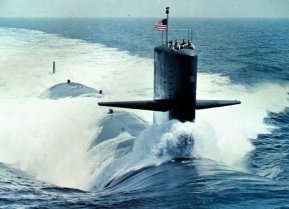Kim Jong Un’s Gamble: North Korean Troops Enter Russia-Ukraine Conflict
The arrival of North Korean troops in Ukraine does not bode well either for Ukraine or for its Western backers. But it might not work out all that well for Russia or North Korea either.
North Korean Troops in Russia: Benefits, but also Risks for Moscow and Pyongyang - It has been widely reported that thousands of North Korean troops, the exact number is unclear, are in Russia and that some 8,000 are now in Kursk where the U.S. government expects them to soon join Russian troops in the combat effort to expel Ukrainian forces from the portion of that Russian province still under Ukrainian occupation.
Moscow brought North Korean troops onto Russian territory and even sent them to the battlefield because Putin anticipated benefits from doing so. Although the North Korean deployment is tiny compared to the number of Russian troops on the front lines, their presence might relieve the need for Moscow to redeploy its troops from inside Ukraine to Kursk. In addition, while the Kremlin may worry about the sensitivity of the Russian public to Russian casualties, North Korean casualties are not something that ordinary Russians will worry about.
Finally, bringing in North Korean troops in response to Ukraine’s surprise seizure of Russian territory in Kursk may be intended to dishearten Ukrainians, especially since this raises the possibility that even more troops from North Korea and perhaps elsewhere might join Russia in fighting against them.
For Pyongyang, the benefits of sending North Korean troops to Russia might include, as Michelle Ye Hee Lee pointed out in the Washington Post, much-needed cash for North Korea’s heavily sanctioned economy, Russian technological assistance for North Korean military production, including its nuclear program, and increased world attention for North Korean leader Kim Jong Un, which he reportedly craves.
Some also fear that Kum Jong Un is sending his troops to Russia to gain battle experience which they might employ against South Korea. Perhaps he even sees sending North Korean troops to fight Russia’s enemies as obligating Moscow to send Russian troops to fight Pyongyang’s.
This deployment, however, also involves potential costs for both Putin and Kim Jong Un. It may be that North Korean troops prove to be more trouble than they are worth if they do not fight effectively and coordination between them and Russian ones proves problematic, as some Russian troops have already acknowledged. It would also be embarrassing to both Moscow and Pyongyang if North Korean troops ended up defecting to Ukraine and then moving to South Korea. Seoul has already raised the prospect of responding to the deployment of North Korean troops to Russia by providing South Korean arms to Ukraine.
Moscow and Pyongyang, though, are proceeding despite these risks, either because they do not see them as all that serious or because they believe the potential benefits outweigh the costs.
Even if this calculation is accurate, other risks may be more difficult for Moscow or Pyongyang. While Putin has demonstrated that he is willing to accept high levels of Russian troop casualties, Kim Jong Un might balk at sending more North Korean troops if they end up being slaughtered in large numbers. Acquiring battlefield experience for possible use against South Korea, after all, is only useful if North Korean soldiers survive fighting against Ukraine.
One risk that Putin runs is that inviting North Korean troops into Russia to fight against Ukraine opens the door to Kyiv inviting troops from other countries to Ukraine to fight against Russians. Even if most, or even all, NATO governments might not want to do this officially, “volunteers” from various NATO countries might arrive in increased numbers.
Putin, though, may not worry about risk-averse NATO governments getting more involved in the Ukraine war. What should concern him, though, is what dependence on North Korean troops does to Russia’s image. Moscow’s dependence on Iran for armed drones and ballistic missiles as well as North Korea for artillery shells and now soldiers hardly enhances Russia’s image as a great power.
As the war goes on, will Russia become even more dependent on others for arms and troops? What price will it have to pay for them? And what will happen if they cease to be forthcoming?
The arrival of North Korean troops in Ukraine does not bode well either for Ukraine or for its Western backers. But it might not work out all that well for Russia or North Korea either.
About the Author:
Mark N. Katz is a professor emeritus of government and politics at George Mason University, a global fellow at the Wilson Center, and a nonresident senior fellow at the Atlantic Council.
Image Credit: Creative Commons.


